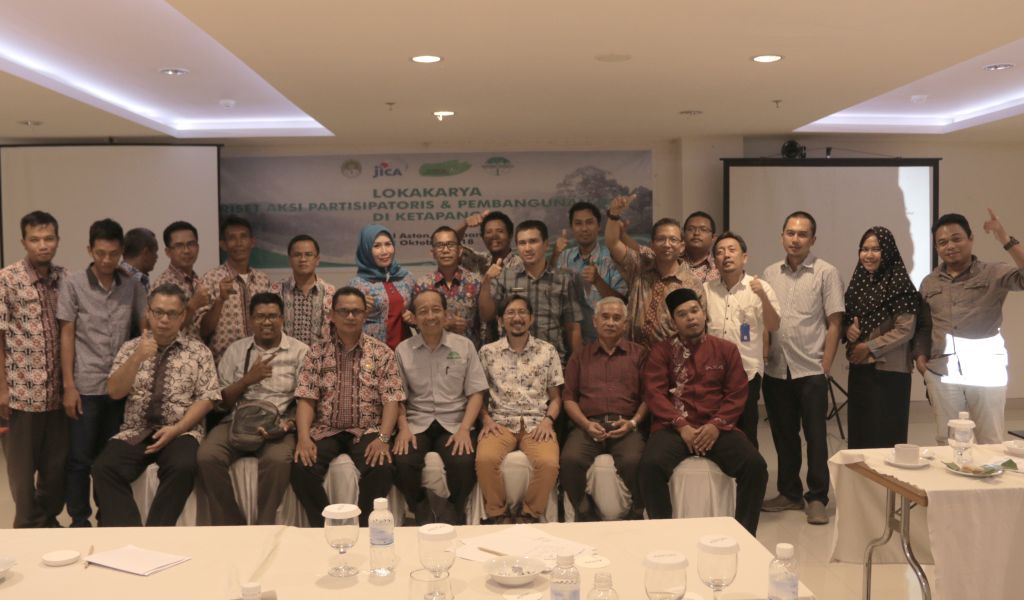Workshop on Participatory Action Research and Village Development in Ketapang, West Kalimantan

On October 18th, 2018, The Center of People and Forests (RECOFTC) Indonesia Country Program in collaboration with Tropenbos Indonesia and fully supported by JICA, held a Workshop on Participatory Action Research (PAR) and Village Development in Ketapang District, West Kalimantan Province, Indonesia.
The workshop was attended by 49 participants representing stakeholders from the district, sub-districts, villages, Gunung Palung National Park, communities, private parties, and NGOs. The workshop discussed about lessons learned from PAR applications in two villages in Ketapang namely Sungai Putri and Laman Satong villages, for the improvement of the Village Medium Term Development Plan (RPJMDes) and Village-Owned Enterprise (BUMDes).
The Director of RECOFTC Indonesia, Gamma Galudra, at the event presented PAR as a research method that embodied the principles of participation and action that emphasized processes which the results had an impact on the community.
According to Director of Tropenbos Indonesia, Edi Purwanto, the application of PAR in Laman Satong and Sungai Putri Villages was very satisfying. In Sungai Putri Village, the results of the PAR were included in the review process of RPJMDes. While in Laman Satong, PAR was used to identify the village business potential, especially in the fields of ecotourism and crafts.
It is hoped that the PAR method can be further adopted by Local Governments at all levels so that the active participation of the community in their regional planning events, especially in the Development Planning Consultation (Musrenbang) can be further encouraged to be more participatory and inclusive, and in the end to achieve mutual prosperity.

